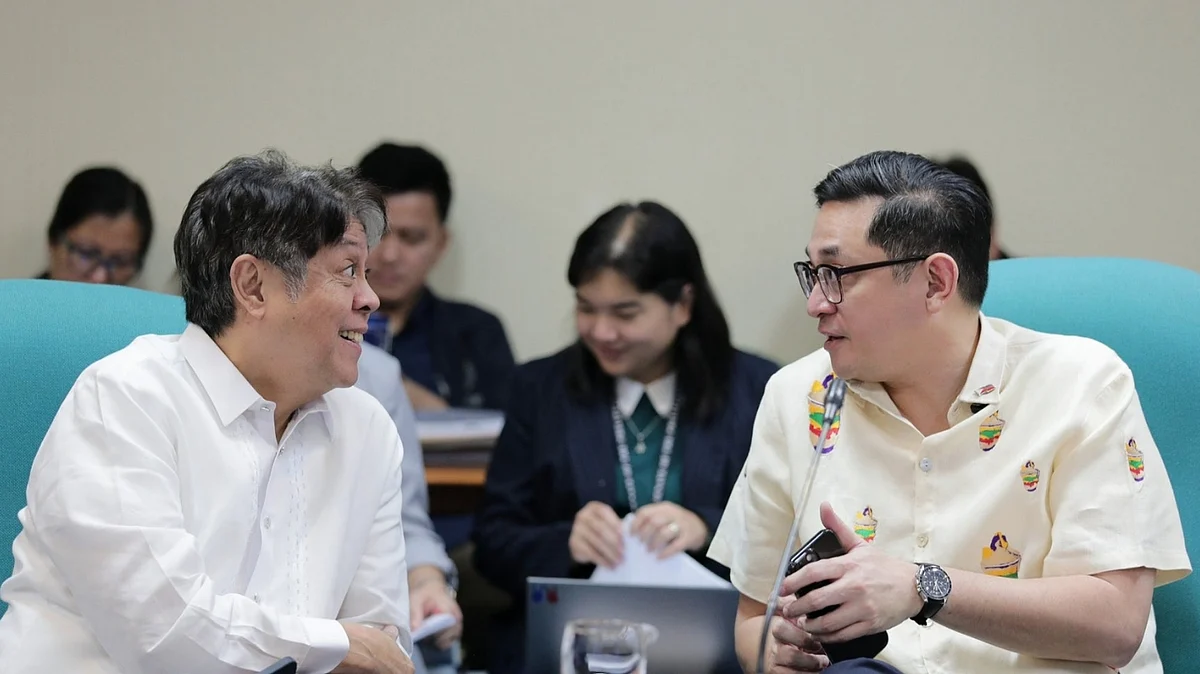By Gabriela Baron
Copyright tribune

Senators Bam Aquino and Francis “Kiko” Pangilinan over the weekend pushed for increased funding for state universities and colleges (SUCs) under the proposed 2026 national budget, warning of a looming P3.29-billion funding gap and persistent educational inequities across the country.Aquino urged the Department of Budget and Management (DBM) and SUCs to ensure that enrollment projections match allocations under the 2026 budget and future appropriations.The Philippine Association of State Universities and Colleges projects that enrollment in SUCs will rise by 300,000 students in 2026, from 1.97 million at present to 2.27 million. However, Aquino said DBM figures fall short of this projection, creating a funding shortfall.“For the 2026 budget, we have to agree. The projection and the budget give should match,” Aquino said, stressing the need to align enrollment projections per SUC with corresponding Free Higher Education (FHE) funding.“Moving forward, your projections per SUC and your associated FHE funding should match so that there is no blame. Let’s not agree to let your enrollment go down. Your enrollment should go up because that’s really where we want to go,” he added.Aquino assured SUCs that the Senate committee would work to restore a P12.3-billion budget deficit and ensure adequate allocations for capital outlay, maintenance and other operating expenses (MOOE), and personal services. He added that education should benefit from any budget realignments: “We already said that if we will remove the flood control, the budget should go to the education. We will make sure that support goes to basic and higher education.”Pangilinan, in a separate statement on Saturday, underscored the urgency of addressing what he described as “alarming gaps” in higher education access. Citing the EDCOM II report, he said the participation rate in higher education is just 34.8 percent nationwide and only 18 percent in the Bangsamoro, compared with the 41.1 percent average in Southeast Asia.“The 2026 budget for higher education is not just a line item. It is our answer to the Filipino youth who want a better future,” Pangilinan said.“I’m ready to hear the presentations and ready to support interventions that will provide additional funding for our state colleges and universities,” he added.He also lamented that nearly four out of 10 students nationwide drop out before finishing their courses, while 93.4 percent in the Bangsamoro fail to pursue higher education.Pangilinan noted that despite the expanded coverage of Republic Act 10931, or the Universal Access to Quality Tertiary Education Act, SUCs still face limited capacity, with most offering only education and business programs. Enacted in 2017, RA 10931 provides free tuition and other school fees in SUCs, local universities and colleges, and state-run technical-vocational institutions. Funding comes annually from the national budget and is intended to cover tuition, miscellaneous fees, and subsidies for underprivileged students.Historically, SUC funding has been allocated under three main items: capital outlay, MOOE, and personal services. While allocations have increased since RA 10931 was passed, schools have consistently reported deficits in classroom construction, laboratory equipment and faculty hiring. Lawmakers have flagged mismatches between enrollment projections and DBM-released budgets, creating perennial gaps that force SUCs to either limit admissions or cut back on student support services.Pangilinan also criticized changes to the tertiary education subsidy, which reduced annual assistance from P60,000 to P10,000, calling it inadequate to cover tuition, transportation, living expenses, and books.“What this means is: we have a generation of youth whose dreams have been cut short. We have lost potential teachers, engineers, lawyers, (and) health workers that our country needs,” he said.



